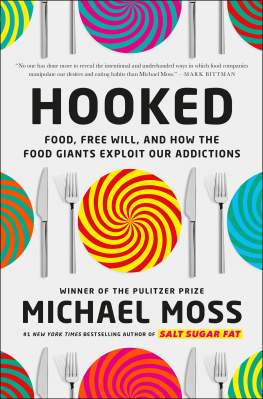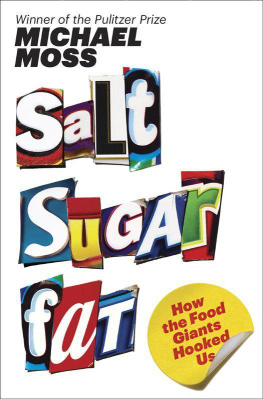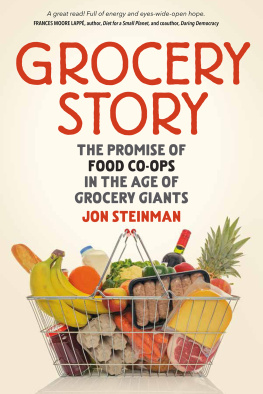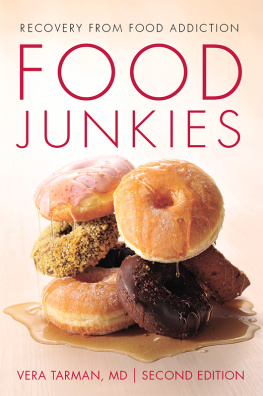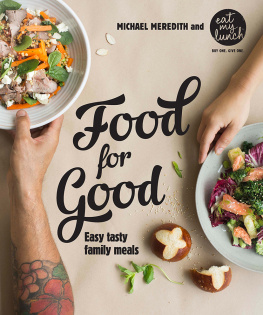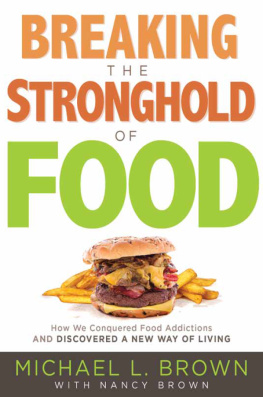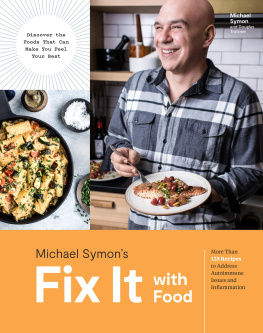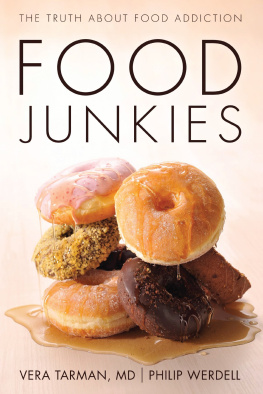Michael Moss - Hooked: Food, Free Will, and How the Food Giants Exploit Our Addictions
Here you can read online Michael Moss - Hooked: Food, Free Will, and How the Food Giants Exploit Our Addictions full text of the book (entire story) in english for free. Download pdf and epub, get meaning, cover and reviews about this ebook. year: 2021, publisher: Random House Publishing Group, genre: Politics. Description of the work, (preface) as well as reviews are available. Best literature library LitArk.com created for fans of good reading and offers a wide selection of genres:
Romance novel
Science fiction
Adventure
Detective
Science
History
Home and family
Prose
Art
Politics
Computer
Non-fiction
Religion
Business
Children
Humor
Choose a favorite category and find really read worthwhile books. Enjoy immersion in the world of imagination, feel the emotions of the characters or learn something new for yourself, make an fascinating discovery.
- Book:Hooked: Food, Free Will, and How the Food Giants Exploit Our Addictions
- Author:
- Publisher:Random House Publishing Group
- Genre:
- Year:2021
- Rating:3 / 5
- Favourites:Add to favourites
- Your mark:
- 60
- 1
- 2
- 3
- 4
- 5
Hooked: Food, Free Will, and How the Food Giants Exploit Our Addictions: summary, description and annotation
We offer to read an annotation, description, summary or preface (depends on what the author of the book "Hooked: Food, Free Will, and How the Food Giants Exploit Our Addictions" wrote himself). If you haven't found the necessary information about the book — write in the comments, we will try to find it.
Hooked: Food, Free Will, and How the Food Giants Exploit Our Addictions — read online for free the complete book (whole text) full work
Below is the text of the book, divided by pages. System saving the place of the last page read, allows you to conveniently read the book "Hooked: Food, Free Will, and How the Food Giants Exploit Our Addictions" online for free, without having to search again every time where you left off. Put a bookmark, and you can go to the page where you finished reading at any time.
Font size:
Interval:
Bookmark:
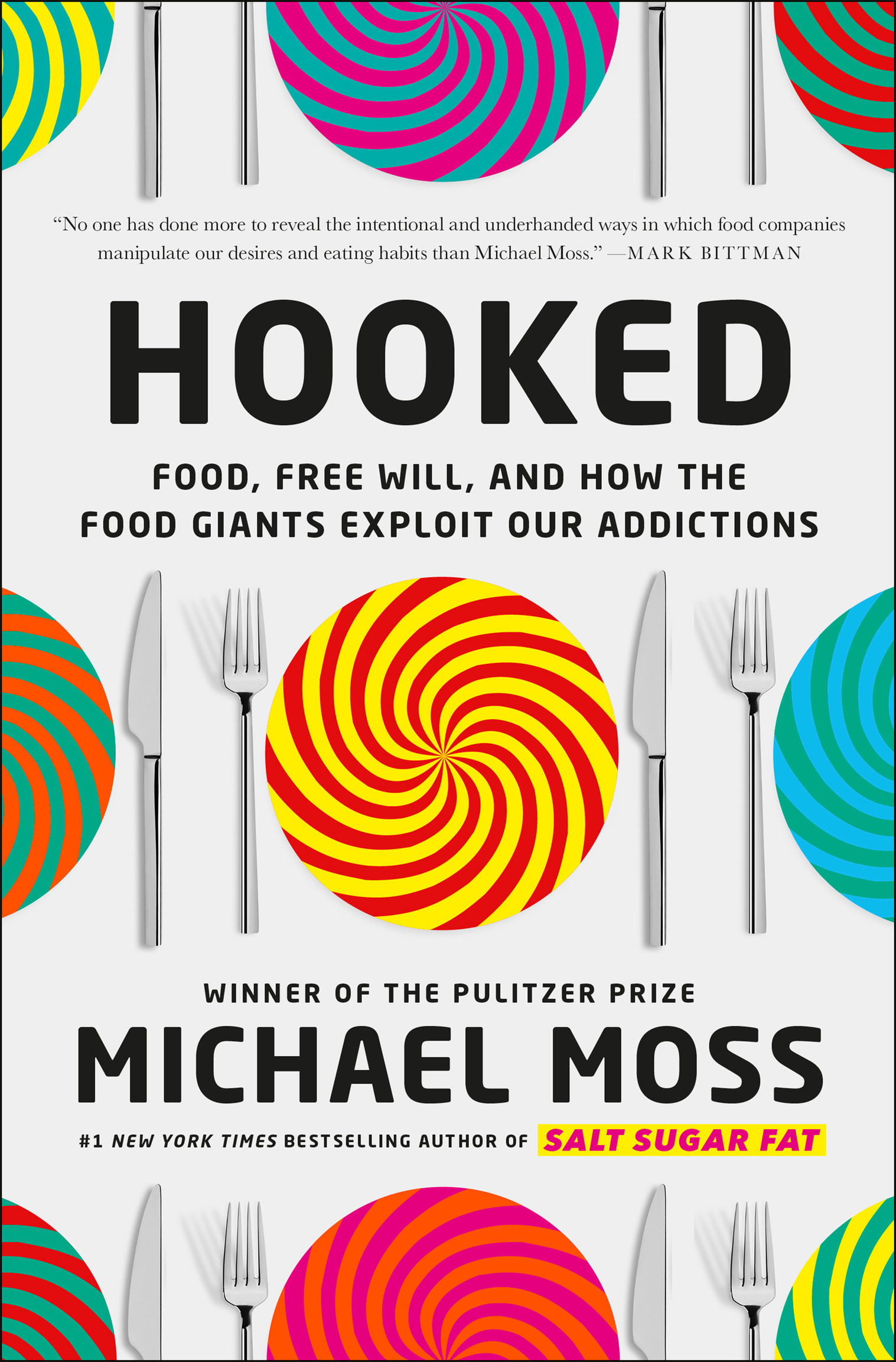
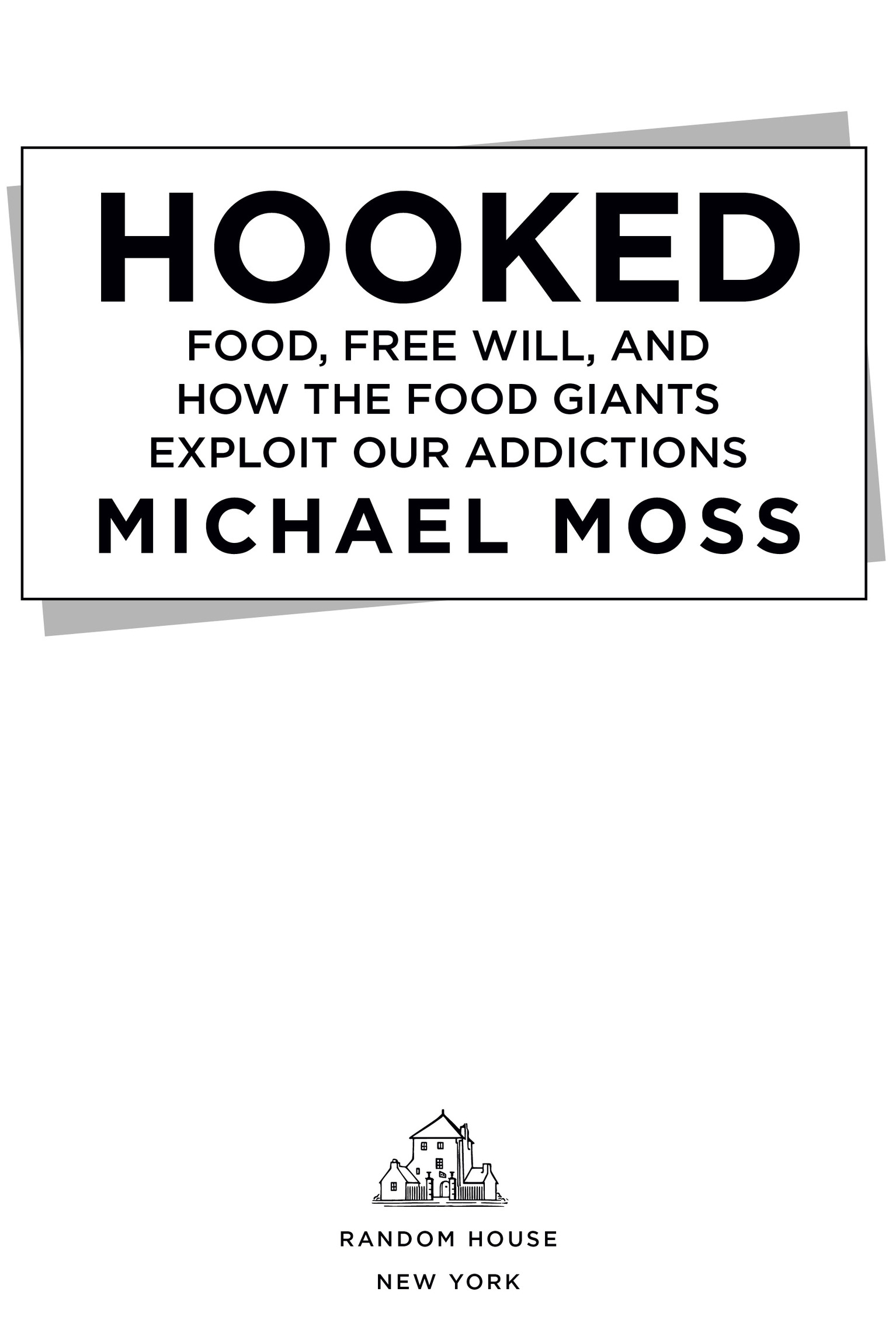
Copyright 2021 by Michael Moss
All rights reserved.
Published in the United States by Random House, an imprint and division of Penguin Random House LLC, New York.
Random House and the House colophon are registered trademarks of Penguin Random House LLC.
Hardback ISBN9780812997293
Ebook ISBN9780812997309
International Edition ISBN9780593243251
randomhousebooks.com
Book design by Diane Hobbing, adapted for ebook
Cover design: Lucas Heinrich
Cover image: ersinkisacik/Getty Images (knife and fork)
ep_prh_5.6.1_c0_r0
Jazlyn Bradley was seven years old when McDonalds worked its way into her life. Her family moved to a redbrick townhouse in Brooklyn, New York, only a block and a half from one of the restaurant chains locations, making it an easy stop for a quick bite to eat. Bradley loved to get the Happy Meal, the boxs golden arches opening to reveal a fragrant burger, fries, a cookie, and a toy. Some evenings, her father came home from work with armfuls of McDonalds, the boxes and bags multiplying as the family grew. Bradley and her siblingsshe was the second of tenwould leap upon these feasts, jostling for the last fry.
In the early days of her childhood, those McDonalds nights were special occasions. The Bradleys dinners were mostly home-cooked, and she was the pickiest of the bunch. She did not like meat loaf. She did not like liver. She really did not like mashed potatoes, which her mother seemed incapable of imagining dinner without. With her brothers and sisters all happily eating their favorite foods, Bradley came up with a way to get what she liked, too. At dinnertime, shed announce that she wasnt all that hungry, which her mother would shrug off as an attempt to dietBradley had started to put on some weight. Ten minutes later, however, shed be out the front door, sneaking down the block to McDonalds.
She used her allowance on these excursions, which led her to appreciate another of fast foods charms. The larger sizes hardly cost any more than the small. Once she did the math, she ditched the Happy Meal for the Number Two: a pair of burgers for nearly the price of one. The same logic worked for the sodas and fries; getting the giant size only made sense.
By middle school, McDonalds had become the first meal of Bradleys day. Shed skip breakfast and lunch, but more than make up for it when school let out. Shed work the whole menu board, adding the biggest fries, the biggest shake, and a couple of pies to the twin burgers, and shed double it all, intendingyet sometimes failingto give the second meal to a friend or her youngest brother. At one point, she commuted to an after-school program in the Bronx, where shed stop at another McDonalds before heading back into the subway; thered be a pile of empty wrappers on her lap by the time she reached her stop.
I had one of those deep stomachs, she told me. I just loved to eat. I had a food affair. As a kid, I didnt want that milk. I wanted burgers and French fries, or hot dogs and French fries. My mom would find cake wrappers under my bed, and even now, in the middle of the night, Ill go and look in the refrigerator.
In describing her eating habits, Bradley was touching on themes that people everywhere were grappling with in dealing with food and the trouble it could cause. She sensed that there was something going on inside her body to deepen her appetite, but she couldnt nail down just what that might be. She felt passionate about food, but in a tawdry kind of way: an affair, as she called it. And it wasnt any old thing that stole her heart; particular foods were uncanny in the way they attracted her. She despised potatoes, yet flipped for fries. She loved ground beefif it arrived in a bun. She got full almost immediately at her mothers table, but had never met a bag of fast-food takeout that was big enough to satiate her. What sense did any of that make?
Moreover, when she was struck by the urge to eatwhich could happen anytime during the day or the night, even if she was not really hungry, and in fact when she couldnt be hungry, as when the craving hit her right after a mealthe certainty that she would cave in to the impulse left her embarrassed. Thus, the wrappers stashed under the bed.
Bradleys relationship to food was compelling, too, for how it changed over time. Where, as a young girl, eating could be pure joyId do a little shake when I atea darkness had set in by the time she entered high school. She noticed how often she ate when she felt troubled. She began to use food to deal with issues, like, as the second oldest child, not getting the kind of attention she needed from her parents. She had asthma so severe that walking too fast would cause her to gasp, meaning exercise was out. Her weight edged up and down, but eventually reached 250 pounds at age sixteen. On her five-foot, six-inch frame, this pushed her beyond the plus sizes in clothing.
Food was by no means the only challenge in Bradleys life. She had dyslexia, which made school more difficult. Her family landed in a shelter for a time. Bradley had bouts of depression and loneliness, and when her family moved to a new neighborhood, she fiercely missed the friends shed spent summers with out on the streets, eating ices and splashing in the water when the firefighters opened a hydrant. Yet she toughed it all out, or maybe those were the things that made her tough. Life hadnt been easy for her thus far, but the day came when she got the chance to settle a score.
The Bradley family was friendly with an attorney named Samuel Hirsch, no stranger himself to the boroughs grit. Born in 1946 in an Austrian camp for people displaced by World War II, he moved with his family to Brooklyn, worked his way through law school, won a seat in the state assembly, joined a 1978 melee over the fatal stabbing of a Jewish man and got arrested for punching a cop (which he denied, and the case was dismissed), eked out a criminal practice defending members of the Mafia, and shifted gears to bring civil lawsuits on behalf of people who got hurt.
He represented Bradley and several of her siblings in a case that stemmed from the lead paint in their home. The legal claim was taking years to resolve, and Hirsch visited the family with some frequency, even bringing gifts on Christmas. In 2002, Hirsch asked Bradley, then in her senior year of high school, if she would join him in a different sort of injury case. He was suing McDonalds for ruining peoples healthnot by accident or contamination, but through the very design of its products.
This would be a much harder fight than the lead suit, with less chance of success, he knew, starting with the fact that he had no experience in this type of claim. But then again, nobody did. The closest thing up until that point had been a case brought against McDonalds for surreptitiously cooking its fries in beef fat, which the company settled not with a big payout to the plaintiff, but by donating $10 million to Hindu and vegetarian groups. Hirsch, however, was convinced that a case against McDonalds on health grounds was potentially stronger, could possibly be lucrative, and would be significant for everyone, given the pain and suffering being caused by the modern diet.
An analysis from the U.S. surgeon general, which Hirsch cited in his court papers, estimated that obesity alone caused three hundred thousand premature deaths each year. Hirsch quoted him as well in warning that Americas eating habits may soon cause as much preventable disease and death as cigarette smoking, with heart disease, type 2 diabetes, several types of cancer, and musculoskeletal disorders including osteoarthritis of the knee all linked to excessive and unhealthy eating. Even the economy was taking a hit, Hirsch noted. The annual bill for obesity had been calculated to be $117 billion in medical expenses and lost wages, part of the hidden cost passed on to consumers by the manufacturers of fast and heavily processed food.
Font size:
Interval:
Bookmark:
Similar books «Hooked: Food, Free Will, and How the Food Giants Exploit Our Addictions»
Look at similar books to Hooked: Food, Free Will, and How the Food Giants Exploit Our Addictions. We have selected literature similar in name and meaning in the hope of providing readers with more options to find new, interesting, not yet read works.
Discussion, reviews of the book Hooked: Food, Free Will, and How the Food Giants Exploit Our Addictions and just readers' own opinions. Leave your comments, write what you think about the work, its meaning or the main characters. Specify what exactly you liked and what you didn't like, and why you think so.

